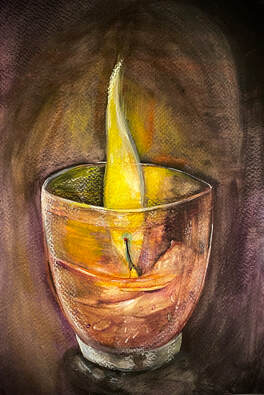My philosophy of Educational Theatre.Through plays, students learn the principles of story, that is, how we create meaning and context in life through words and writing that connect a series of events. Events are described through place, space, time, atmosphere, environment, and symbolically reproduced experiences. As this experience expands, students learn skills and thinking systems that can be applied to other cultures and arts. Through educational theatre, students learn how to collaborate and embrace creativity, imagination, and teamwork critically and analytically, which are important not only in theater but also in other areas of the arts and culture. These skills and thinking systems are also necessary for students to learn other fields of study at school. Through what they learn in theatre classes, students immediately bring theater into their lives and artistic world. They use their ability to look at scripts , based on the critical thinking methods in the curriculum. When students learn about plays, they realize the meaning of art from different perspectives, and they also learn that each different perspective comes from different experiences. Students develop the ability to ask and answer questions to elicit and interpret meaning, and explore how meanings and interpretations are influenced by social, cultural, and historical context. All of these processes have value even outside the world of theatre that the student experiences. Above all, because a play is a so-called ‘joint work’ that is done through cooperation while making eye contact with the other party, character education such as promise, consideration, and cooperation with others can be realized naturally during the production process. In addition, students can stimulate their imagination through activities such as exchanging opinions, communicating with each other, storytelling, and creating novel laughter scenes, and have the opportunity to ‘fuse’ multiple ideas together. This type of theatre education can occur without the learner being conscious of it. This is a type of invisible education, and its impact on learners can be greater than that of intentional education, which is visible education, so it requires systematic and continuous design and implementation. Above all, due to the practical preparation and planning of plays learned through this module class, I became interested in theatre classes that can be practically applied in the classroom. As an artist, I focused on visual and aesthetic art education, but through educational theatre classes, I was able to discover that using the body and voice can amplify the effect in the educational field. In particular, I found that when I taught students through a combination of art classes and theater classes, students' interest and concentration in the class increased. Looking at this, I think that educational theatre should be actively introduced into the field of art education. In particular, when applied to this educational field, the most important attitude is who is the subject of the play. Most teachers write a play plan and guide students according to this framework. Therefore, there is a risk that the subject of the play will proceed in the direction that the teacher wants or imagines. In this case, students move as the teacher wants. This is a behavior that risks taking away the creativity and self-direction that can be gained through theatre. Therefore, my educational philosophy in educational theater is as follows. 1. Open-ended questions give students time and opportunity to think on their own and find answers. 2. The goal is to discover appropriate topics and teaching methods so that student-led theater classes can be held. 3. Teachers become facilitators who help students develop cooperation, creativity, independence, and self-esteem through theater. 4. The goal is to develop a safe space, psychological distance, and social skills where teachers and students can fully interact. 5. The curriculum is developed using a multidisciplinary approach so that theater classes are conducted in collaboration with other classes rather than as stand-alone classes. Based on this basic educational philosophy, I will help students break away from being helpless and passive through theater and have the opportunity to play to their heart's content, listen to and create stories, and actively create fantasies. * Reference: Potential of theater applied to cultural arts education, by Robin Pascoe, Professor
0 Comments
Leave a Reply. |
Myungja Anna KohArtist Categories
All
Archives
July 2024
|
Proudly powered by Weebly


 RSS Feed
RSS Feed